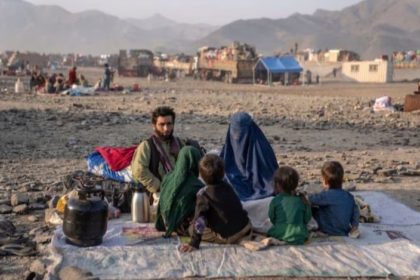RASC News Agency: The Taliban has announced a comprehensive ban on the import of goods from Pakistan, including critical medicines, marking a significant escalation in economic and political tensions between the two neighbors. The decision comes amid a prolonged deterioration of diplomatic ties, compounded by border clashes and the collapse of recent talks in Doha and Istanbul.
Mullah Abdul Ghani Baradar, the Taliban’s Deputy Prime Minister for Economic Affairs, unveiled the directive during a meeting with Afghan business leaders and representatives of trade and industry chambers in Kabul on Wednesday, November 12. Baradar framed the ban as part of a broader economic strategy aimed at fostering self-reliance and reducing Afghanistan’s historical dependence on Pakistan.
“From now on, the Taliban will no longer support any trade or transit activity with Pakistan,” Baradar stated. “The Ministry of Finance has been instructed to immediately halt all imports of Pakistani-produced goods, including medicines, and to facilitate the procurement of these items from alternative sources.”
He also urged Afghanistani merchants to suspend all commercial dealings with Pakistan and to explore diversified trade corridors through Central Asia, Iran, and China, signaling a shift toward regional economic independence.
Supporting Baradar’s announcement, Nooruddin Azizi, the Taliban’s Minister of Industry and Commerce, described Afghanistan’s trade relationship with Pakistan over the past two decades as “the most economically detrimental corridor for the country.” Azizi cited recurring Pakistani closures of border crossings during harvest seasons particularly affecting pomegranates, grapes, and vegetables as deliberate tactics to inflict economic harm on Afghanistani exporters.
Azizi further reported that around 12,000 shipping containers of Afghanistan’s goods remain stranded at Pakistani borders, with negotiations ongoing for their release. While emphasizing that the private sector should avoid becoming entangled in political disputes, he urged businesses to defend national economic interests against external pressures.
Analysts warn that the Taliban’s import ban, while framed as a measure for economic sovereignty, carries immediate risks. The suspension of Pakistani imports, especially medicines and essential goods, is likely to drive up prices, exacerbate shortages, and strain the already fragile healthcare and trade infrastructure.
“In the short term, consumers and businesses will face rising costs and limited availability of critical products,” said a Kabul-based economist. “In the long term, however, this policy may force diversification of trade routes and reduce Afghanistan’s dependency on Islamabad a dependency that has historically left the country vulnerable to political leverage.”
The move also underscores the Taliban’s pattern of economic mismanagement and authoritarian control. By unilaterally restricting imports without a credible plan to ensure alternative supply chains, the regime risks deepening humanitarian crises, aggravating shortages, and further destabilizing domestic markets.
Experts highlight that Afghanistan’s economy remains heavily dependent on imports to meet basic needs, including medical supplies, fuel, and food staples. The sudden severance of trade with Pakistan its historically largest trade partner exposes both the regime’s lack of strategic foresight and the vulnerability of ordinary Afghanistanis to market disruptions and scarcity-driven hardships.
The ban reflects broader Taliban-Pakistan tensions, as decades of complex geopolitical relations unravel amid mistrust, unresolved border disputes, and diplomatic stalemates. Key trade crossings, such as Torkham and Spin Boldak, have been repeatedly opened and closed, creating uncertainty for merchants and exacerbating Afghanistan’s economic fragility.
“The Taliban appear to be using economic measures as a political weapon,” said a South Asia analyst. “Rather than facilitating stability and growth, they are prioritizing ideological posturing over the welfare of their population.”
While the government frames the move as a step toward economic independence, analysts note that the lack of infrastructure, limited access to alternative trade routes, and a collapsing financial system mean that ordinary Afghanistanis will bear the brunt of this policy, facing higher prices for essential goods, shortages of medicines, and increased economic hardship.
Afghanistan’s ban on Pakistani imports illustrates the Taliban’s reckless and shortsighted governance, prioritizing political symbolism over economic prudence and humanitarian responsibility. Without coherent planning, alternative supply chains, and robust market interventions, this policy risks deepening poverty, scarcity, and instability, leaving ordinary Afghanistanis to shoulder the consequences of a regime that consistently places ideology and confrontation above public welfare.






